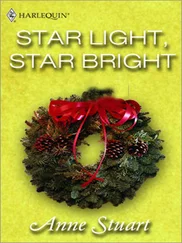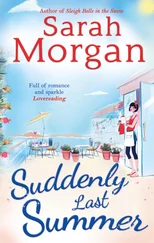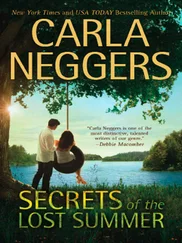‘I could have done those things, yes. But I didn’t, because there was no need,’ Graham said angrily. ‘It might not be like London here, but that doesn’t mean I have time to run around all over the country asking questions I already know the answer to. Nobody doubts that lad was driving except his sister. I feel sorry for her loss, but it doesn’t alter the facts. I can’t tell you any more than that.’
There was nothing else Adam could think of to ask for the moment, and it was clear that Graham was losing patience so Adam thanked him for his time and rose to leave. Graham showed him to the door.
‘That accident had nothing to do with the protest, Adam,’ he said. ‘There’s already been a lot written in the papers about that, and most of it bloody rubbish. Some people around here have had enough of journalists. You might want to remember that before you go around stirring things up.’
‘I’ ll bear it in mind,’ Adam said, thinking that if he didn’t know better, he’d have thought Graham’s warning had sounded almost like a threat.
Angela parked her car in the driveway outside the large red sandstone house that had once belonged to David’s parents. It had a walled garden, and was on the edge of the town. Behind it there was a paddock where Kate, their ten-year-old daughter, kept her pony. Across the fields the River Gelt cut a path through the valley from the fells, which rose up behind the house. In the summer the hills were a patchwork of pale greens and browns and the purple of the heather. In the winter they were grey and barren, shrouded with cloud and often covered with deep snow. In bad years the blizzards could rage for weeks.
She went inside the house and put away the groceries. When she was done she went upstairs to the attic room that had been converted for use as her studio and checked her email. She loved this room, with its big roof window that looked out towards the river and the fells. There was a message from Julian Crown, who was her publisher. He wanted her to call him.
As she stood in front of her drawing board looking at the illustrations for the story that she was working on, she wondered what he wanted. The books that she wrote were very simple, aimed at two- to four-year-olds. It was the accompanying pictures that breathed life into her words. It was a career she’d stumbled into almost by accident, when she’d answered an ad in one of the Sunday papers. After Kate was born the doctors had told Angela she wouldn’t have any more children, so when Kate started going to kindergarten she suddenly had the house to herself again and she was bored. David had said she could help out with the office work at the sawmill if she wanted to, but the business was doing well enough without her, and he already had Mollie as his personal assistant-cum-secretary-cum-administrator. Besides which, the sawmill was David’s passion. She wanted something for herself.
She had phoned her old boss at the mail order company in Carlisle where she’d worked after she’d finished art college, and he’d offered to give her back her old job, but seeing the old office again, and many of the same faces, had made her hesitant. While she was thinking it over she saw an ad inviting people interested in a career as an illustrator for children’s stories to submit samples of their work.
Believing she had nothing to lose she’d gone to the library and pored over a stack of books like the ones she’d read to Kate when she was younger. Then she had gone home and written one herself, basing it around Castleton and the fells and surrounding countryside, and including a few whimsical watercolours. She’d posted it off quickly, before she changed her mind, not really expecting anything to come of it.
The publisher, it turned out, liked her work. His name was Julian Crown. Over the phone he told her that her pictures evoked a strong sense of childlike innocence that was, in his words, ‘really quite charming’. She went down to London on the train to meet him, suspicious that there would be a catch, half expecting him to ask her to pay for the production of her book herself. In fact he turned out to be a likable and genuine man who wore a suit with a buttonhole flower. He took her to lunch at a restaurant in Poland Street and told her that if she listened to his advice he thought he could sell her work. She had, and he did. Since then on average she’d produced a book a year. She wasn’t about to retire to the South of France on the proceeds, but she enjoyed the feeling of independence and the sense of purpose it gave her. She only worked a couple of hours a day, usually in the mornings after Kate had left for school. She could have done more if she wanted. Julian was always trying to persuade her that she should.
She picked up the phone and called the number for Kimberley Books and was put through to Julian.
‘Angela, you got my message.’ He sounded pleased to hear from her.
‘Hello, Julian, how are you?’
‘Marvellous. Couldn’t be better. How’s life in the wild open spaces?’
‘It’s Cumbria, Julian. It isn’t exactly the Russian Steppes.’
He laughed, but to him it might as well have been. On one of her occasional visits to London he’d taken her to meet his wife. They lived in a three-storey Georgian terrace house in a leafy street near Belsize Park. The world of publishing apparently involved an endless round of social events. In between cocktail parties and book launches Julian and his wife, who Angela had thought was beautiful and sophisticated, went to the opera and the theatre and ate at fine restaurants. Their house was tastefully and expensively furnished. Angela had showed Julian on a map exactly where she lived and she recalled his expression of surprise.
‘My dear, it’s practically in Scotland.’ He seemed to think civilization ended somewhere just north of Hampstead, and Hadrian’s Wall hadn’t been built for nothing.
Now, as they chatted, and he asked how her current book was progressing she wondered what he really wanted. She told him the book would be finished on time.
‘Excellent,’ he said, and there was a significant pause.
‘Was there something specific you wanted to talk about, Julian?’
‘Actually there is, now that you come to mention it. An American firm is interested in publishing you.’ He paused to allow a moment for that to sink in. ‘They like your work, but they want you to do a series specifically for their market.’
‘You mean, set them in America?’
‘Actually, they want you to make them more English. Or at least more like the average American’s idea of England. Put in a few teashops and the odd m’lord perhaps. There is a catch,’ Julian added.
‘A catch?’ She should have known there would be. The excitement she’d begun to feel rapidly dissipated.
‘The thing is they want nine books over the next three years.’
‘Nine?’ she echoed.
‘And they would want you for a publicity tour.’
Suddenly she realized exactly what would be involved. What had begun as an interest, something she found personally rewarding, would become a full-time career. Three books a year would mean taking on a commitment way beyond her current contract with Julian. She understood that it wouldn’t end there. It would just be the beginning. A tour would mean she would have to go away, perhaps for weeks. Her life would change. ‘I don’t know, Julian. There’s Kate to think of.’
He sighed. ‘I was afraid you’d say that. This kind of opportunity doesn’t often come along, Angela. It may never happen again. Before you turn it down, at least think about it. Will you promise me?’
She hesitated before she agreed. She owed him that much. ‘Of course I will.’
Читать дальше
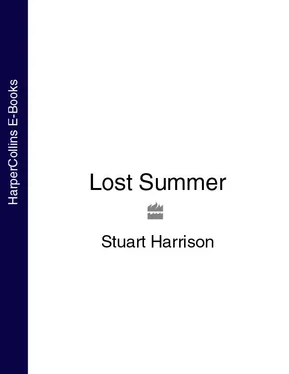
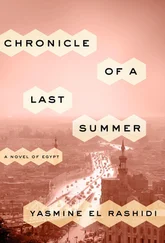

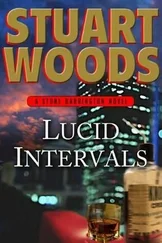

![Маргарет Миллар - Rose's Last Summer [= The Lively Corpse]](/books/384369/margaret-millar-rose-s-last-summer-the-lively-c-thumb.webp)

